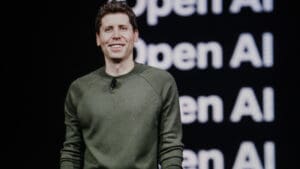OpenAI, the maker of ChatGPT, has completed a sweeping corporate overhaul that values the company at $500 billion, paving the way for it to become a fully fledged for-profit enterprise and one of the world’s most valuable technology companies.
The Silicon Valley group, founded as a non-profit research lab in 2015, has agreed a new structure with its long-time partner and investor Microsoft, allowing it to raise fresh capital while maintaining a non-profit parent body. Under the new arrangement, the OpenAI Foundation will hold equity in the for-profit arm, while Microsoft will retain a 27 per cent stake, now worth about $135 billion.
Announced on Tuesday, the restructuring represents one of the most dramatic transformations in the short history of artificial intelligence — a shift from idealistic research collective to commercial powerhouse. It also cements Microsoft’s central role in the global AI race, extending its access to OpenAI’s technology until 2032, even in the event that OpenAI achieves artificial general intelligence (AGI) — the point at which a system can match the cognitive abilities of a highly educated human.
The deal further binds OpenAI to Microsoft’s vast Azure cloud computing network, with OpenAI agreeing to purchase $250 billion worth of Azure services over the next several years. However, Microsoft will lose its previous right of first refusal on OpenAI’s future cloud contracts — a sign that the AI company is seeking greater flexibility as it expands.
Microsoft shares rose 2 per cent to $542.07 following the announcement, giving the company a $4.046 trillion market value and cementing its position alongside Nvidia in the exclusive $4 trillion club. Apple, valued at $3.997 trillion, is close behind.
“The scale of the Azure commitment underscores Microsoft’s continued dominance in AI infrastructure,” said Raimo Lenschow, analyst at Barclays. “The deal also sets the stage for long-term collaboration between the two firms, in our view.”
Since launching ChatGPT in 2022, OpenAI has transformed from a niche research project into a global phenomenon, with more than 800 million weekly active users and partnerships spanning finance, healthcare, education and media.
Its chatbot — capable of generating human-like text and code — sparked the current AI boom, driving massive investment across Silicon Valley and on Wall Street. But while its influence has soared, OpenAI’s financial model has remained a challenge.
The company continues to operate at a loss as it prioritises rapid model development and global deployment over near-term profitability. Analysts at HSBC forecast losses of $23.5 billion in 2025, rising to $60 billion by 2027, underscoring the cost of maintaining its cutting-edge research.
Under the new structure, OpenAI can pursue large-scale funding more freely and could eventually prepare for a public listing — a move insiders describe as “inevitable” once its governance model stabilises.
In a statement, Bret Taylor, OpenAI’s chairman, said: “OpenAI has completed its recapitalisation, simplifying its corporate structure. The nonprofit remains in control of the for-profit, and now has a direct path to major resources before AGI arrives.”
Gil Luria, head of technology research at DA Davidson, said the deal resolves a long-standing tension between OpenAI’s research mission and commercial ambitions. “This restructuring settles the ownership rights of its technology vis-à-vis Microsoft,” he said. “It provides clarity on OpenAI’s investment path, thus facilitating future fundraising.”
The shake-up comes amid an AI investment frenzy that has redefined global market dynamics. Tech giants Microsoft, Nvidia and Apple have each surpassed the $4 trillion mark in recent months, buoyed by optimism about AI’s transformative potential.
The momentum is also spilling into other sectors. PayPal announced on Tuesday that it had struck a partnership with OpenAI allowing ChatGPT users to buy products directly through its payment platform. The news lifted PayPal’s shares nearly 4 per cent to $73.02, and the company also declared its first-ever dividend — a sign of renewed investor confidence in the digital economy.
For OpenAI, however, the transformation marks a new era. The company that once promised to keep artificial intelligence “safe and accessible for all” is now one of the world’s most valuable private enterprises — a position that brings both opportunity and scrutiny.
As AI becomes the defining industry of the 21st century, the new OpenAI–Microsoft arrangement cements their dominance at the centre of it. What began as a research project in a San Francisco loft is now reshaping global markets, geopolitics, and the future of work itself.
Read more:
ChatGPT firm hits $500bn valuation in landmark profit shake-up
